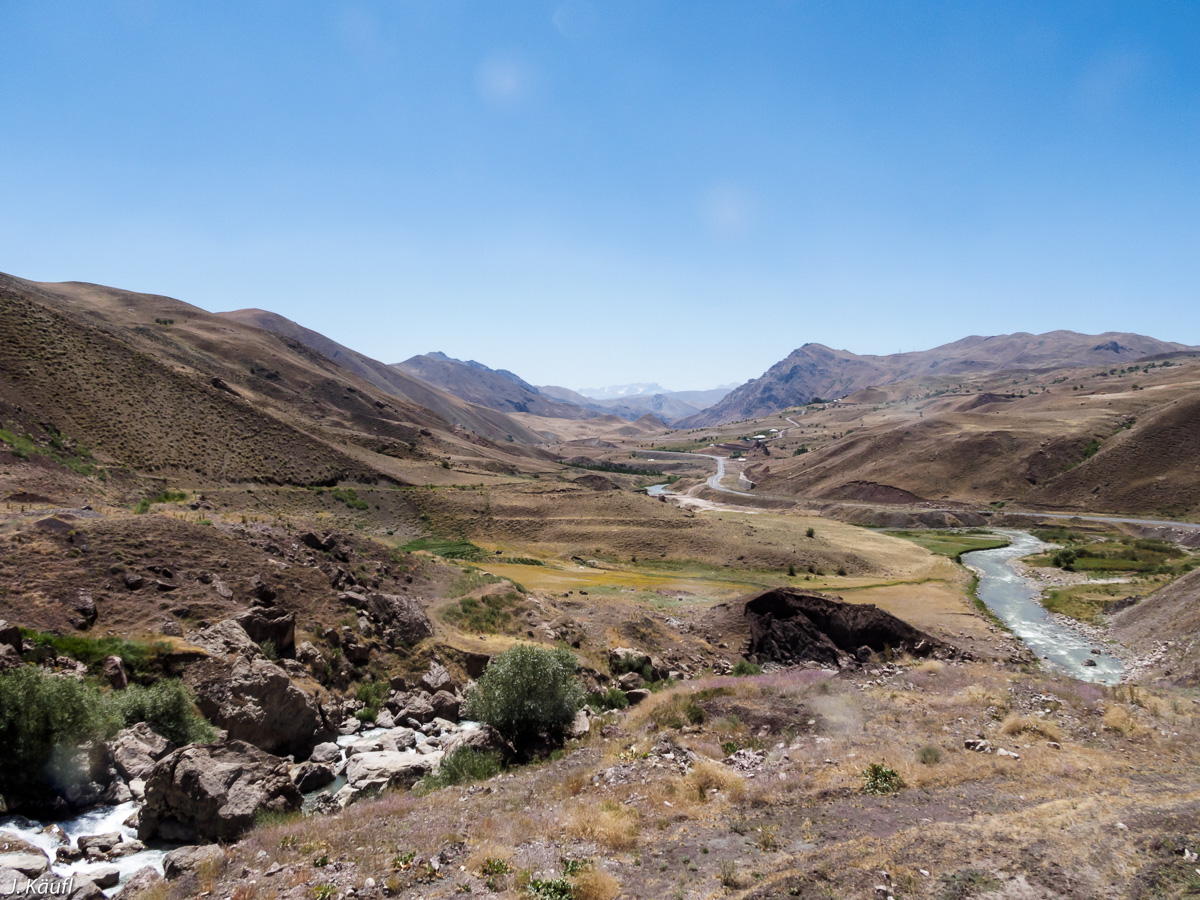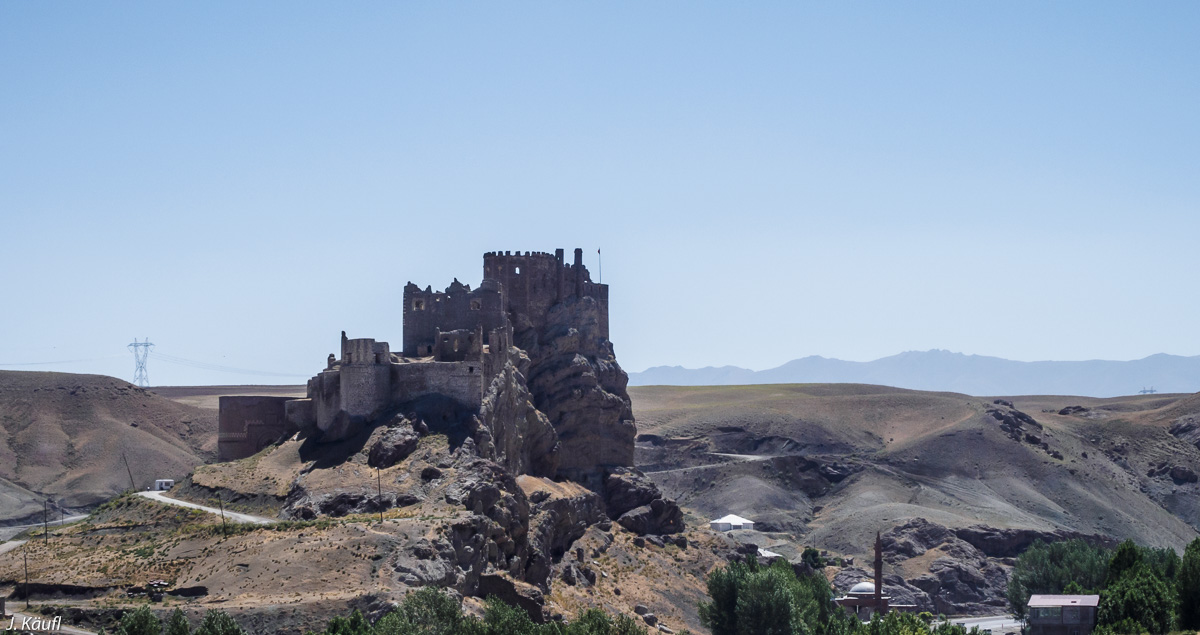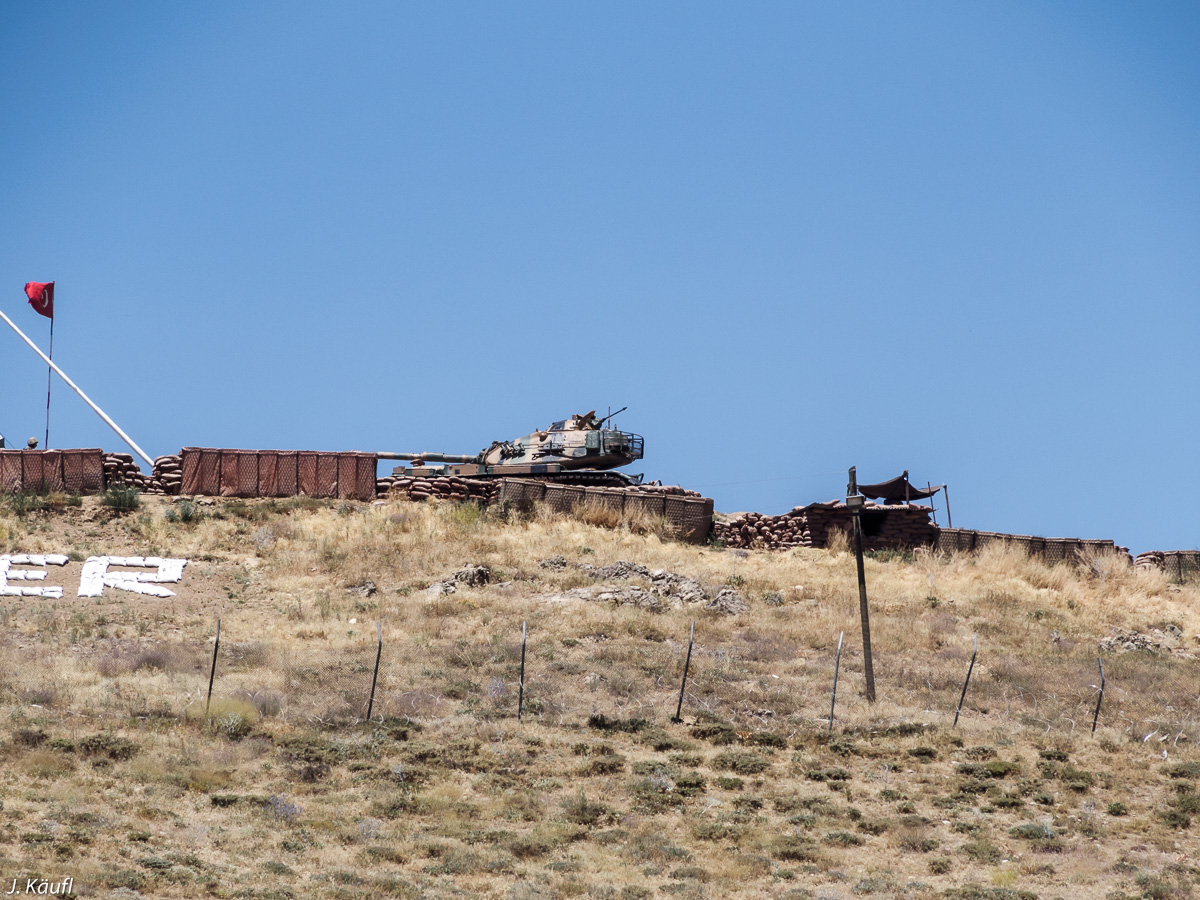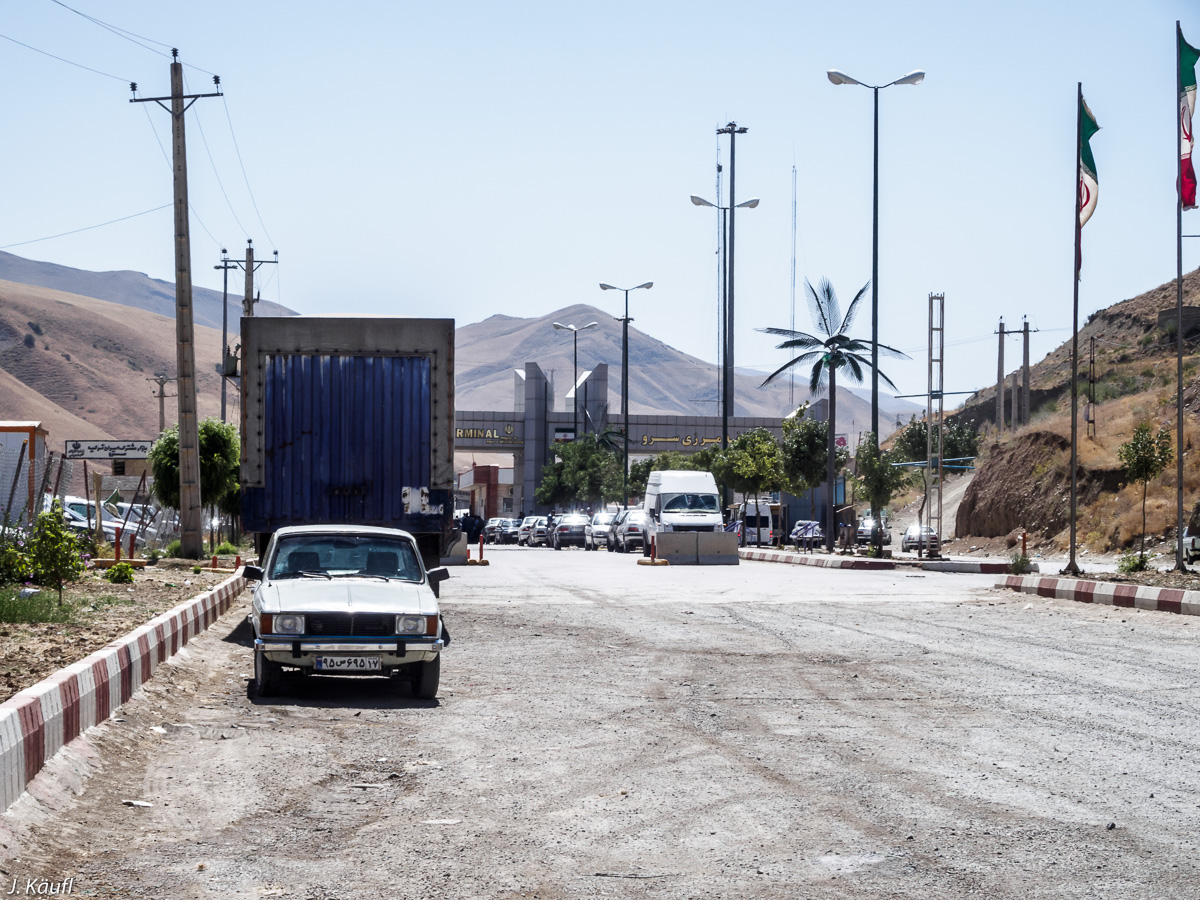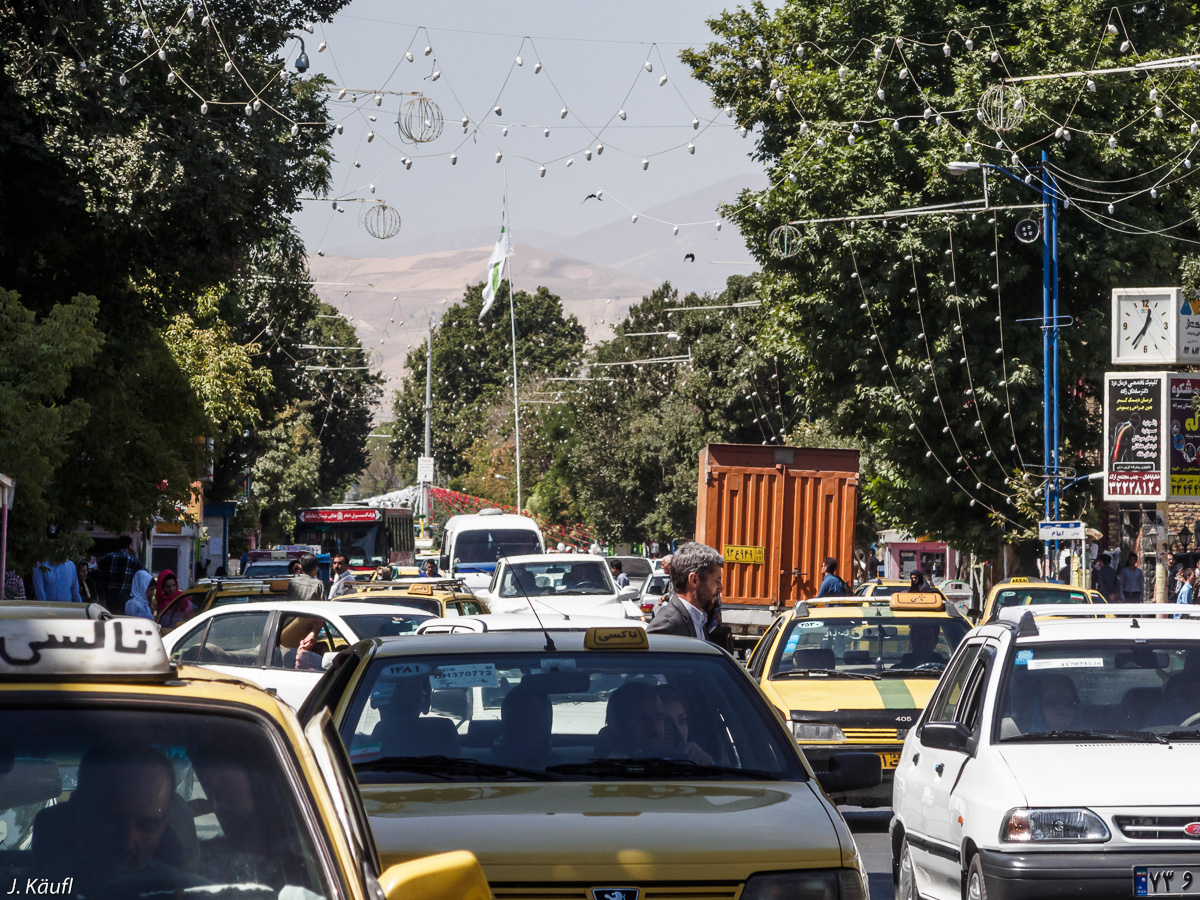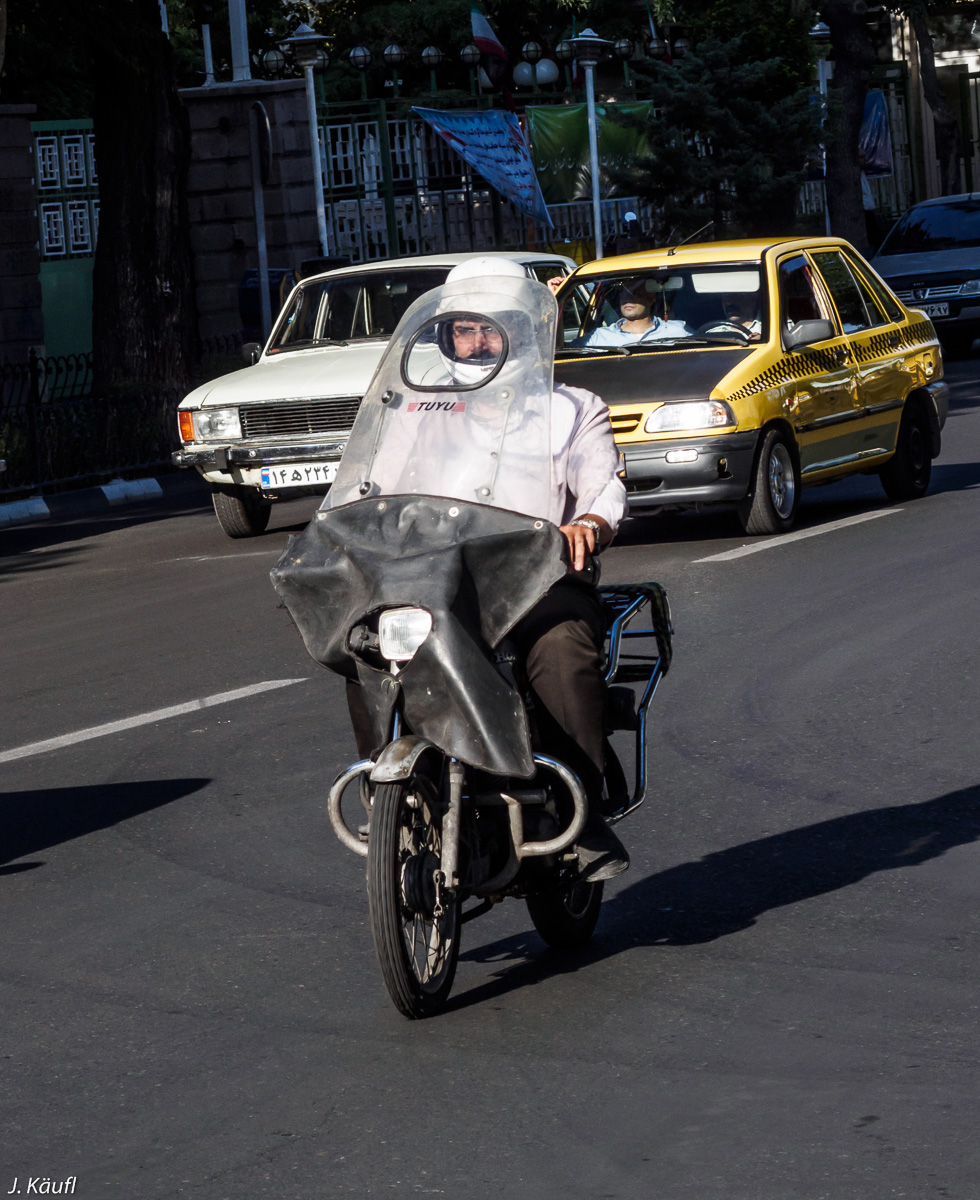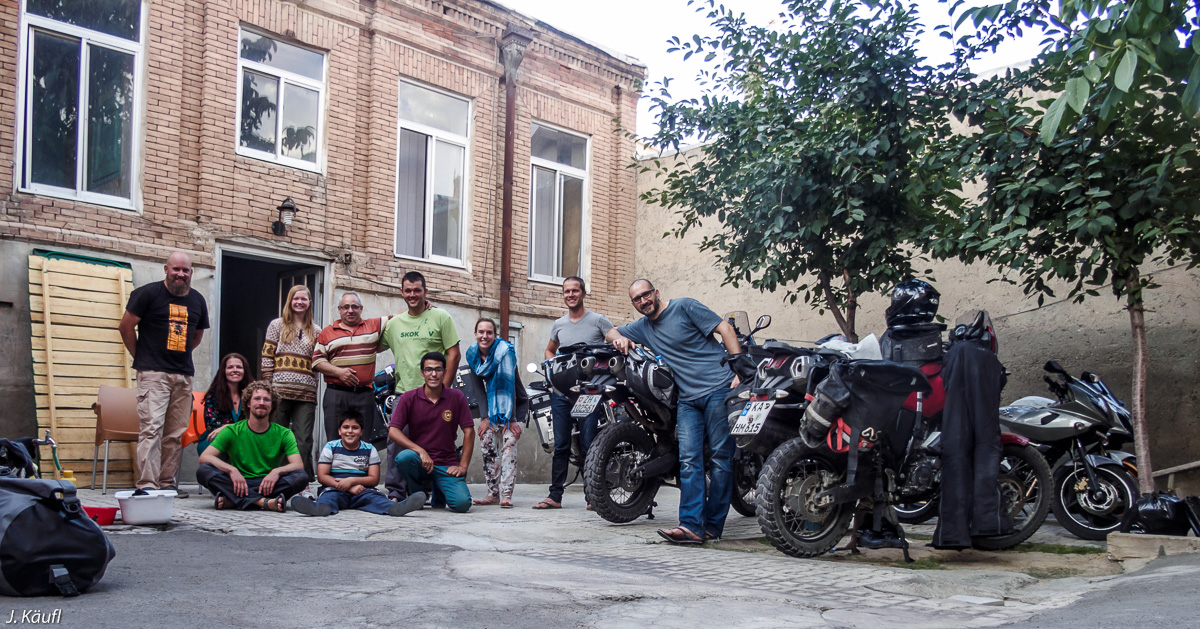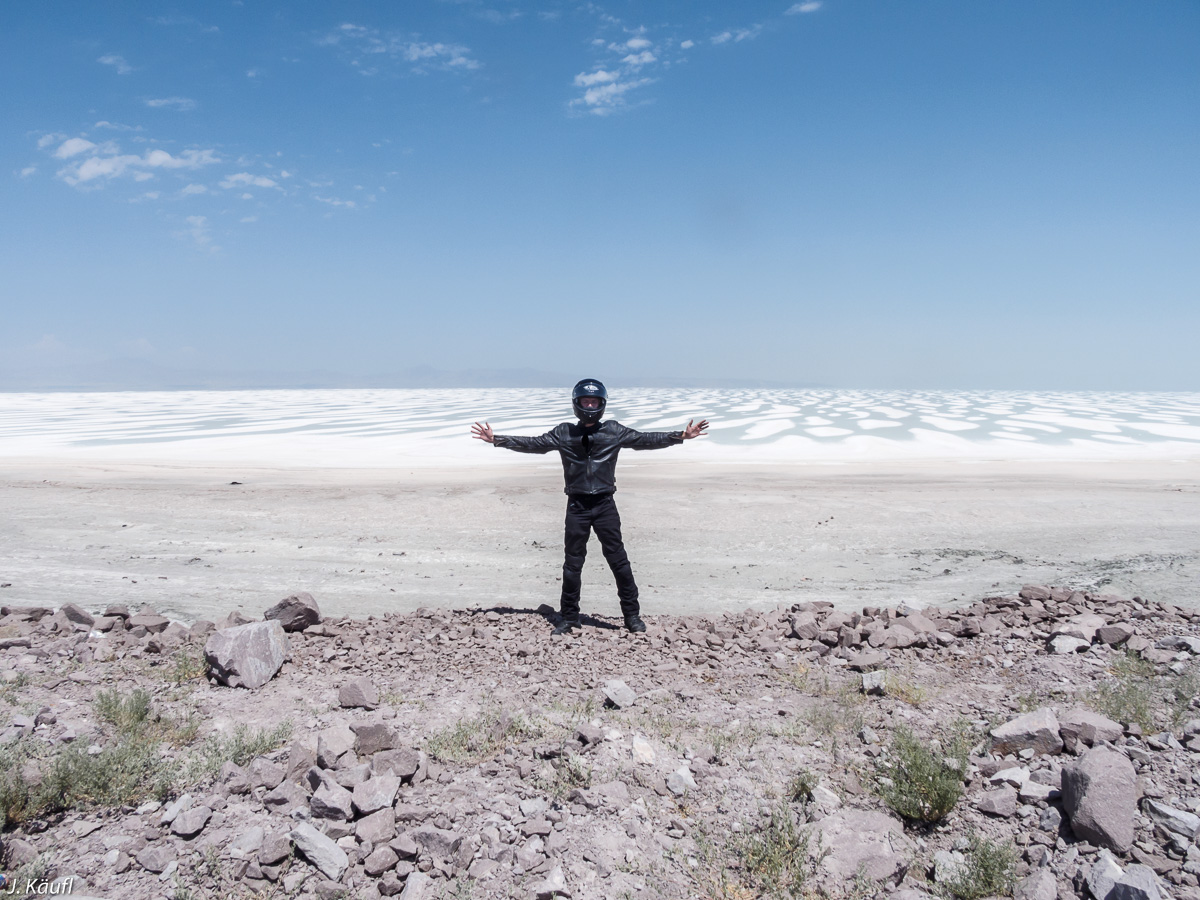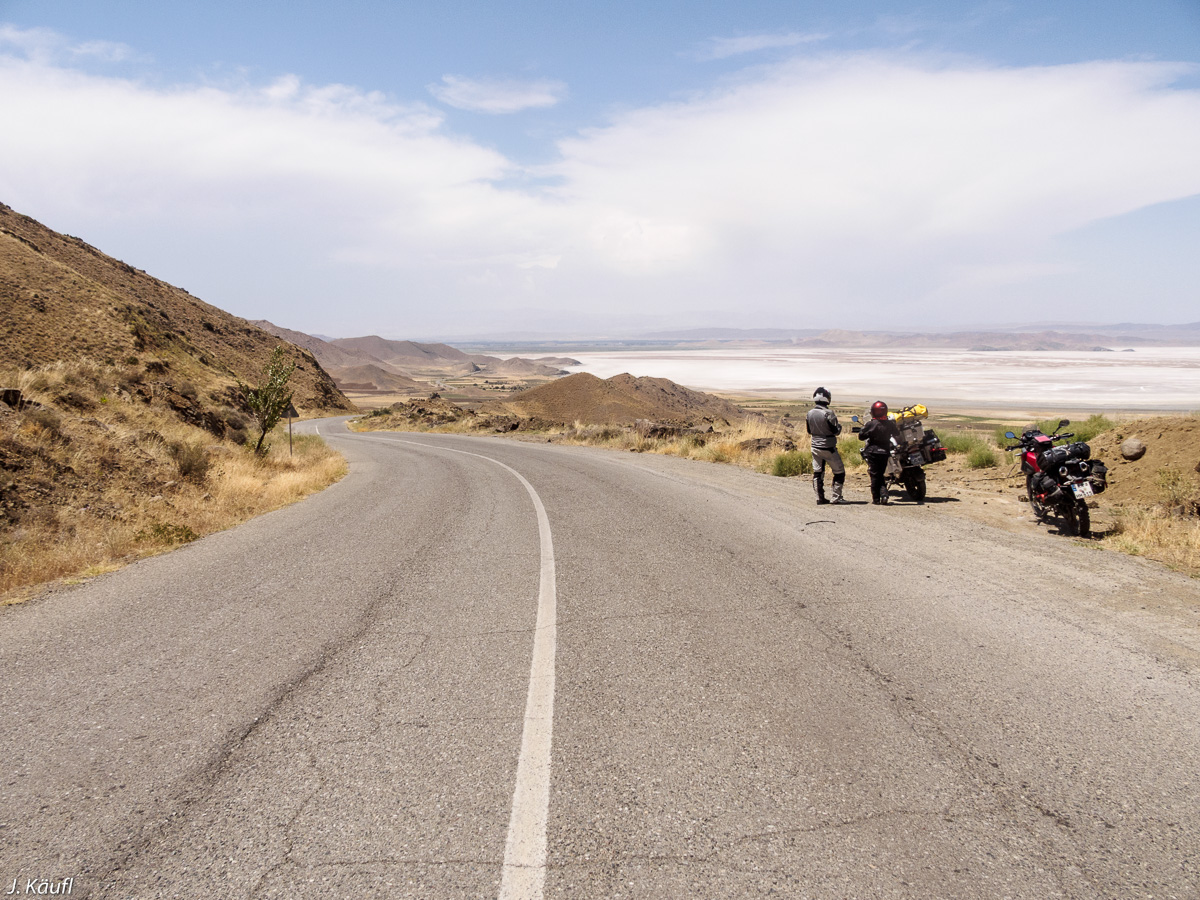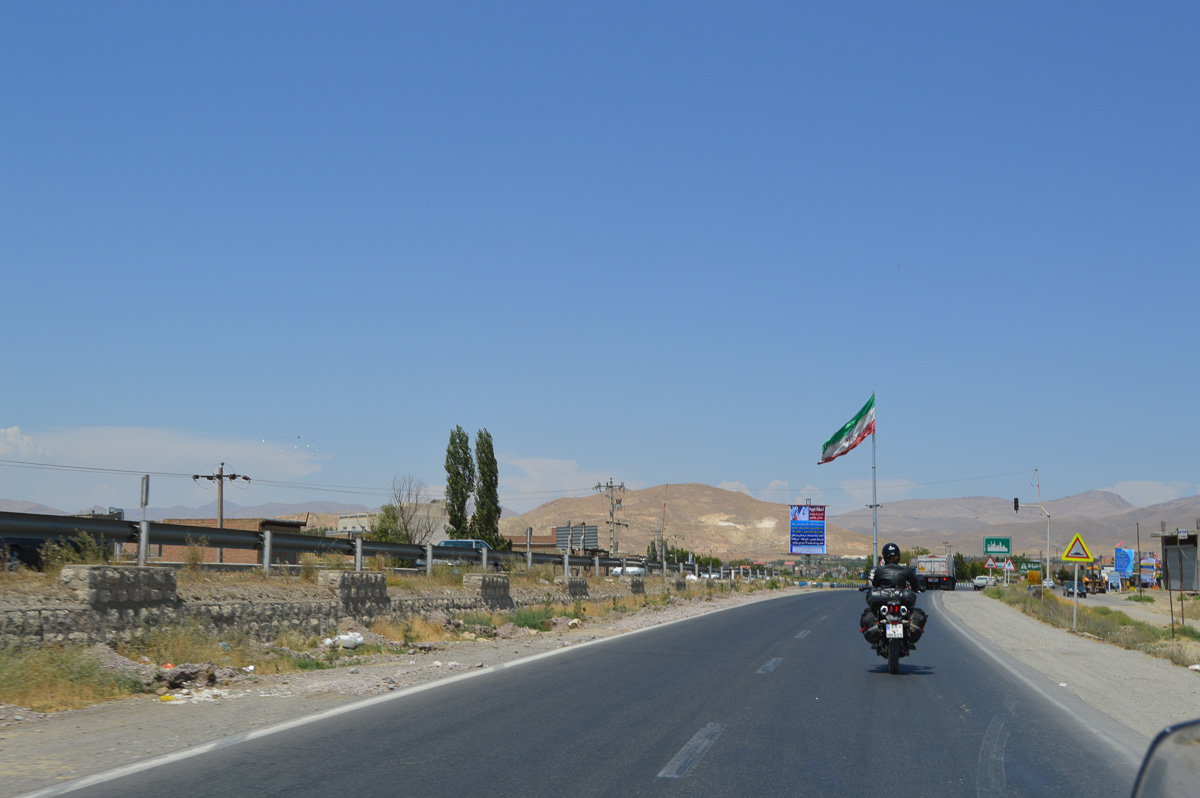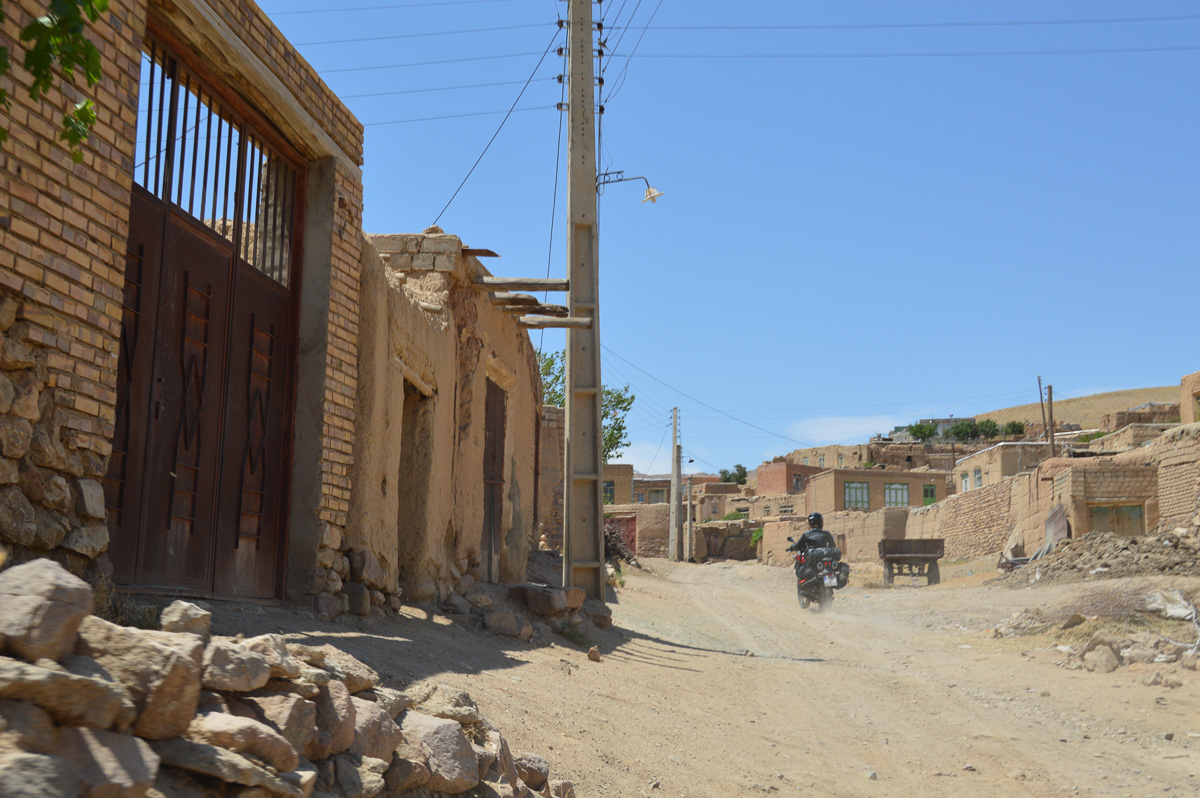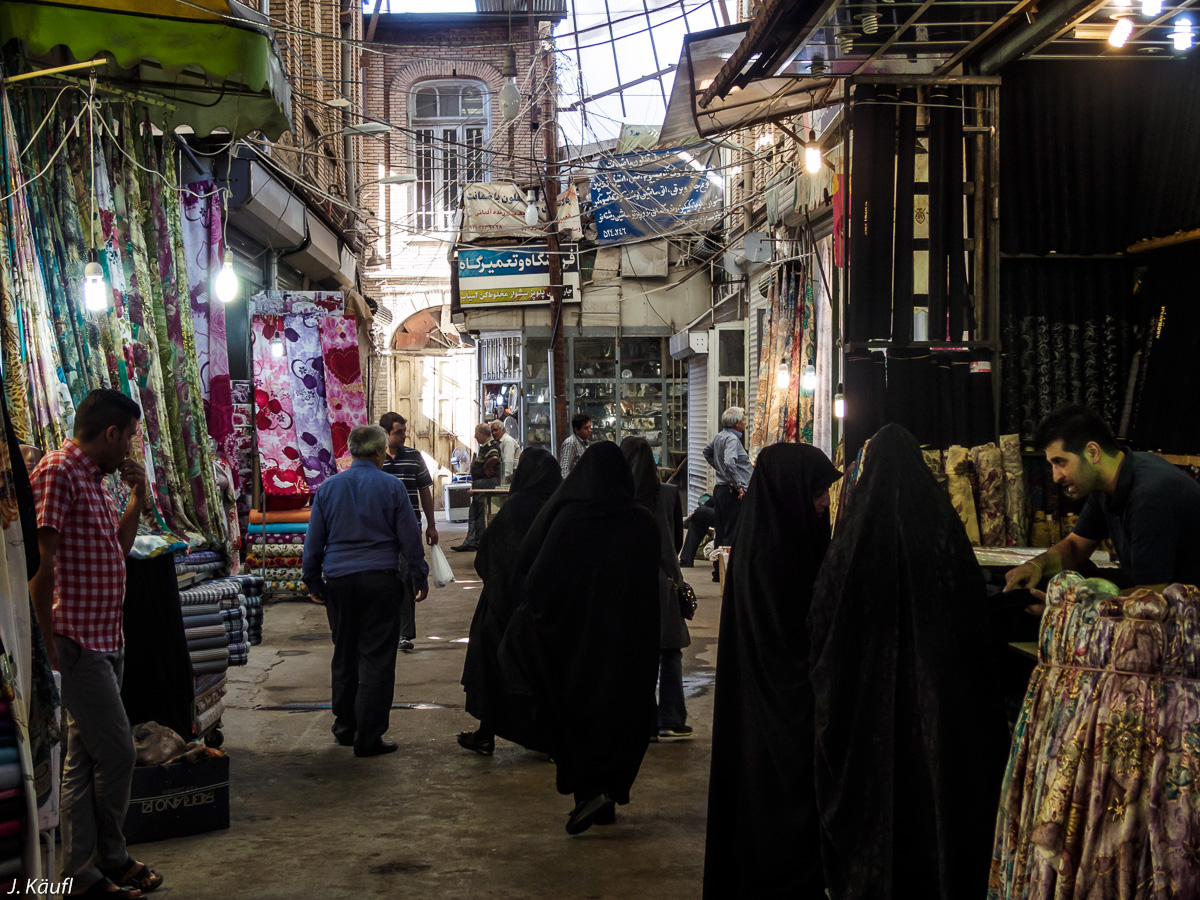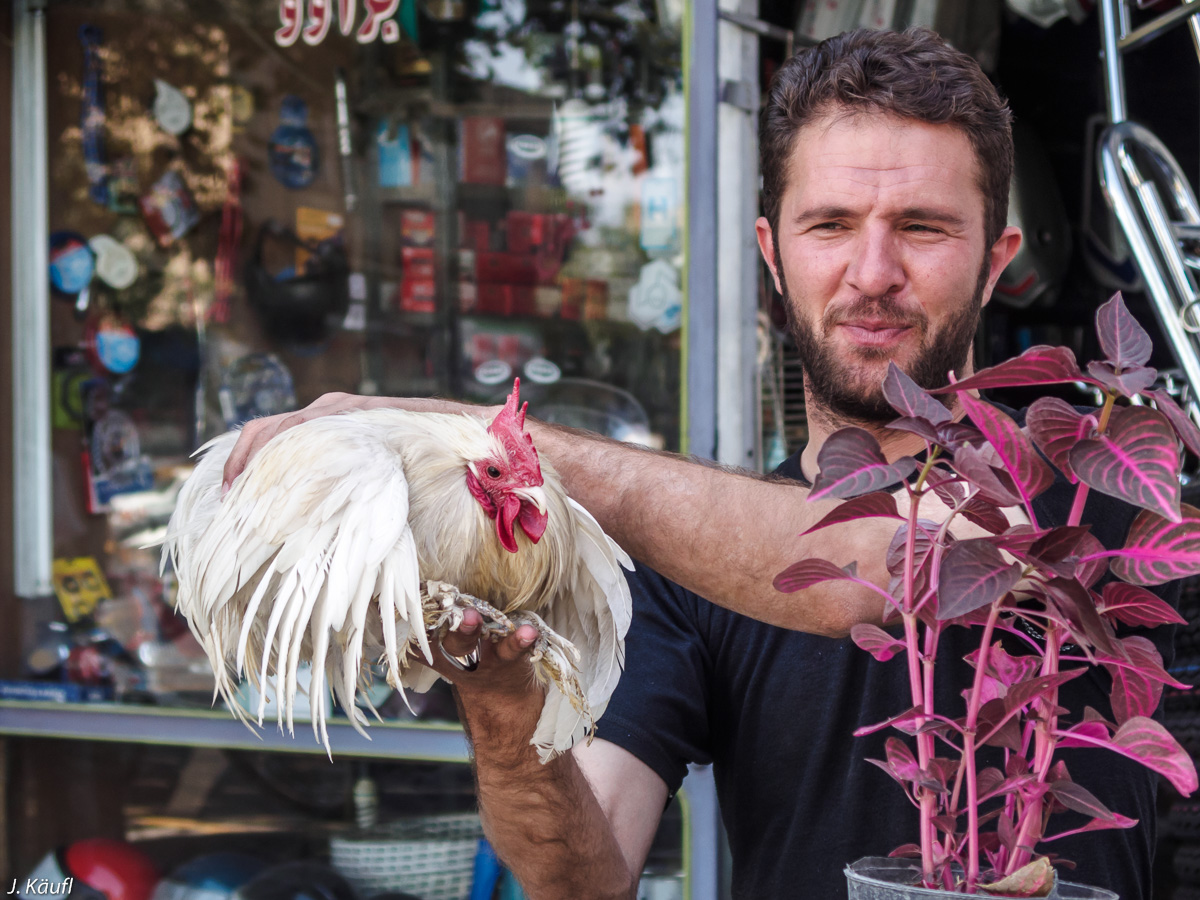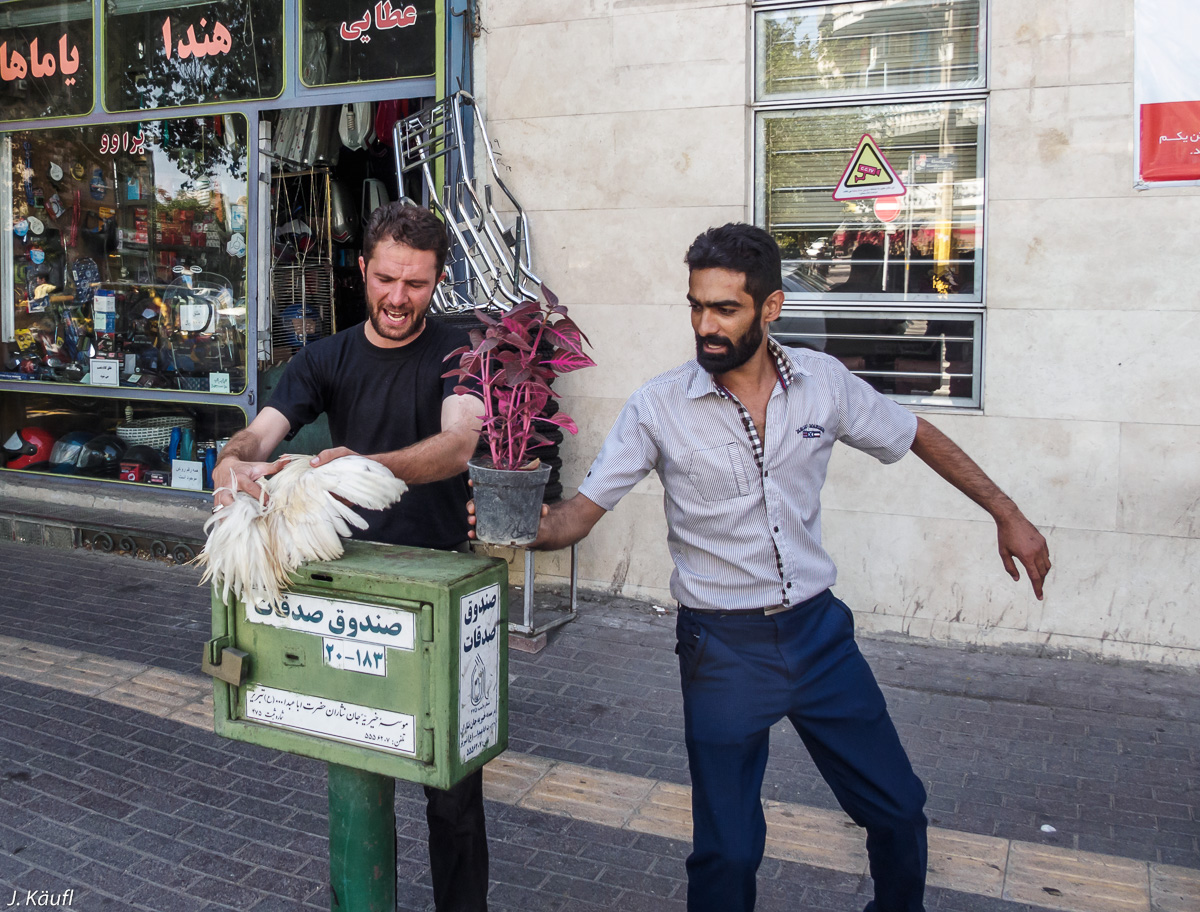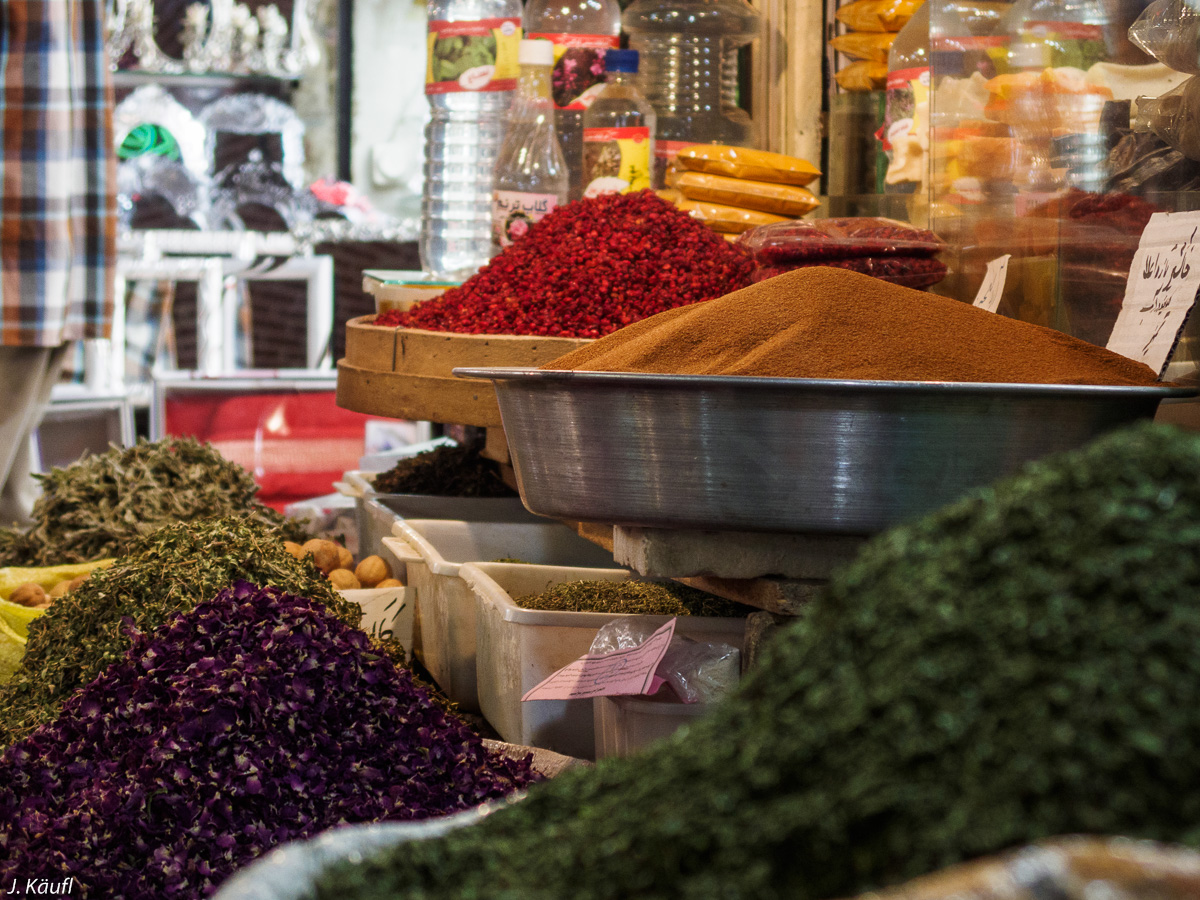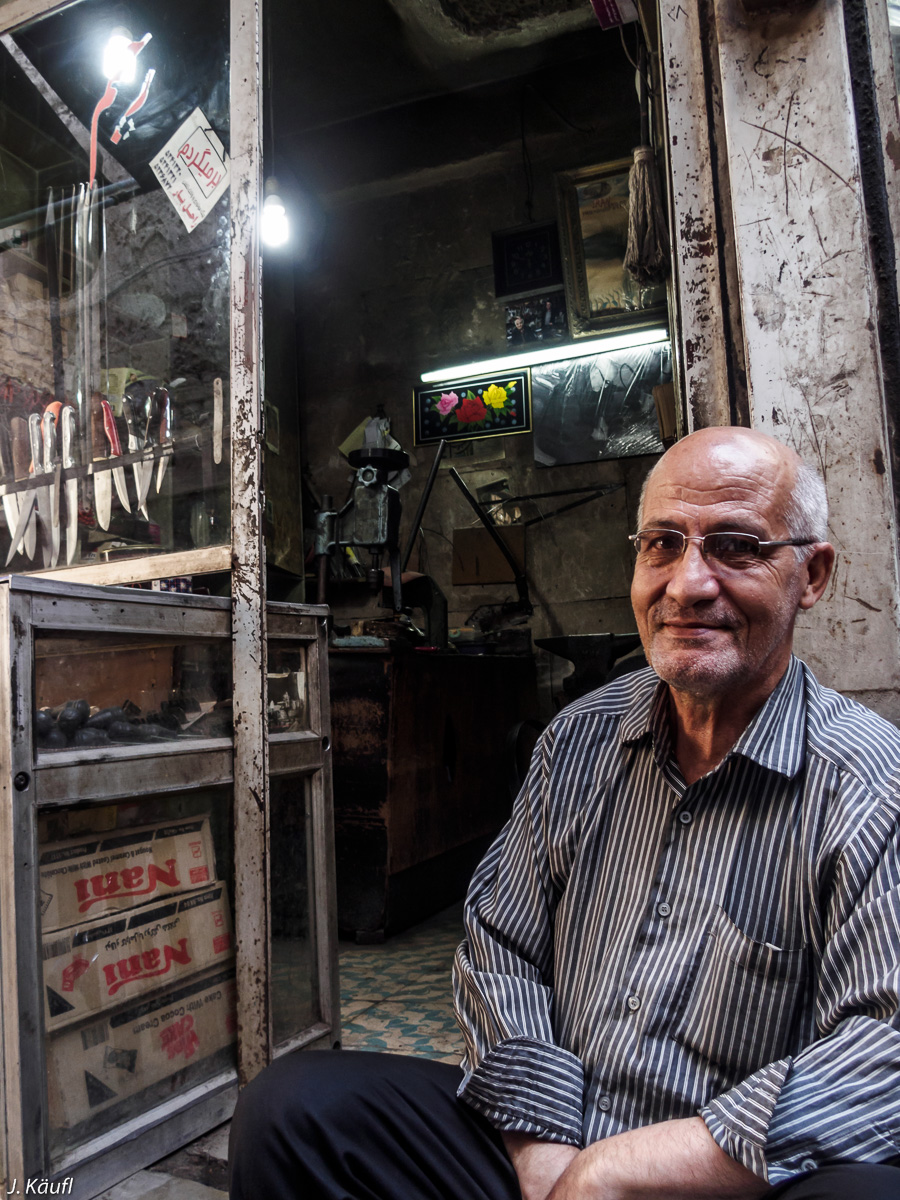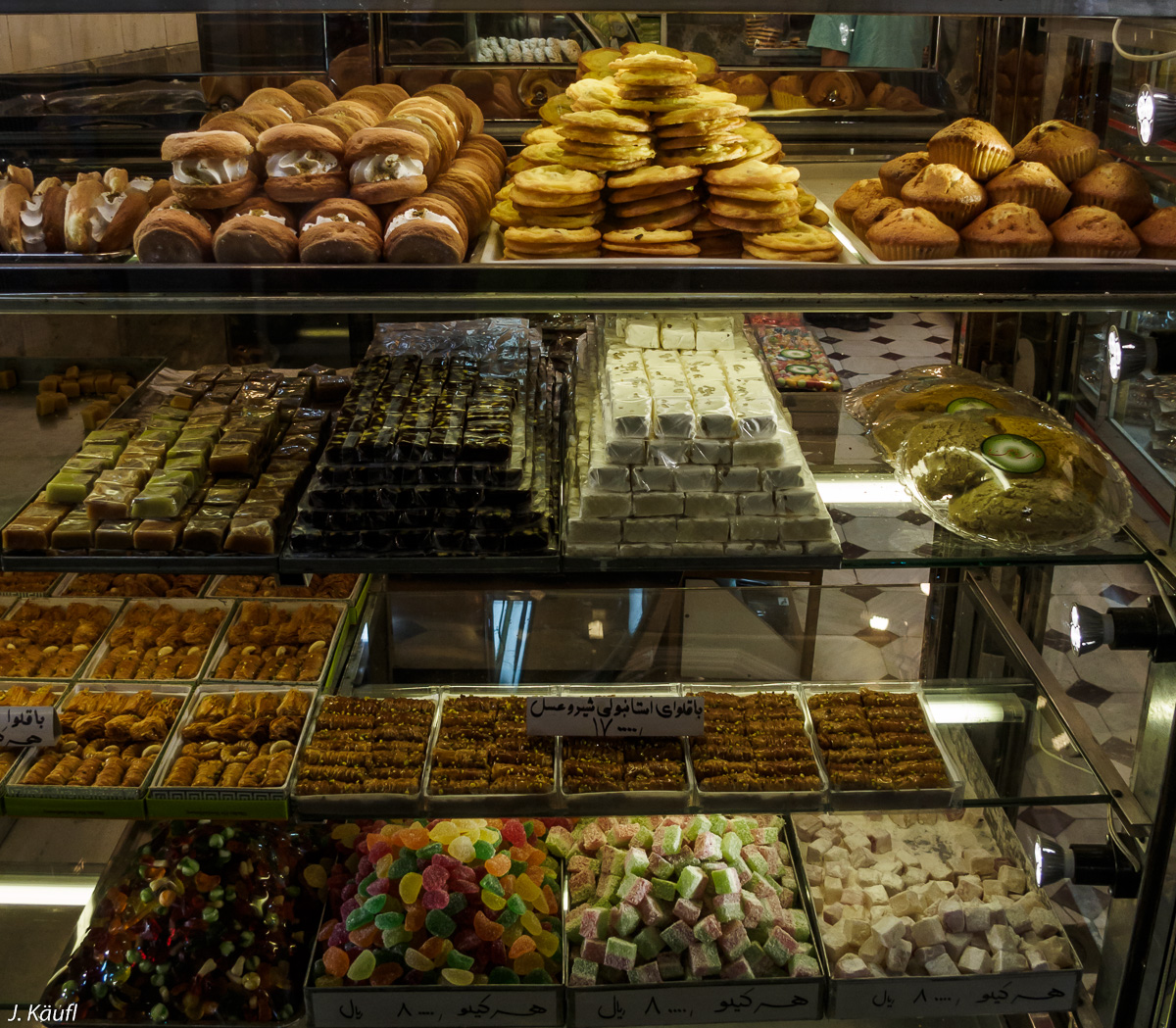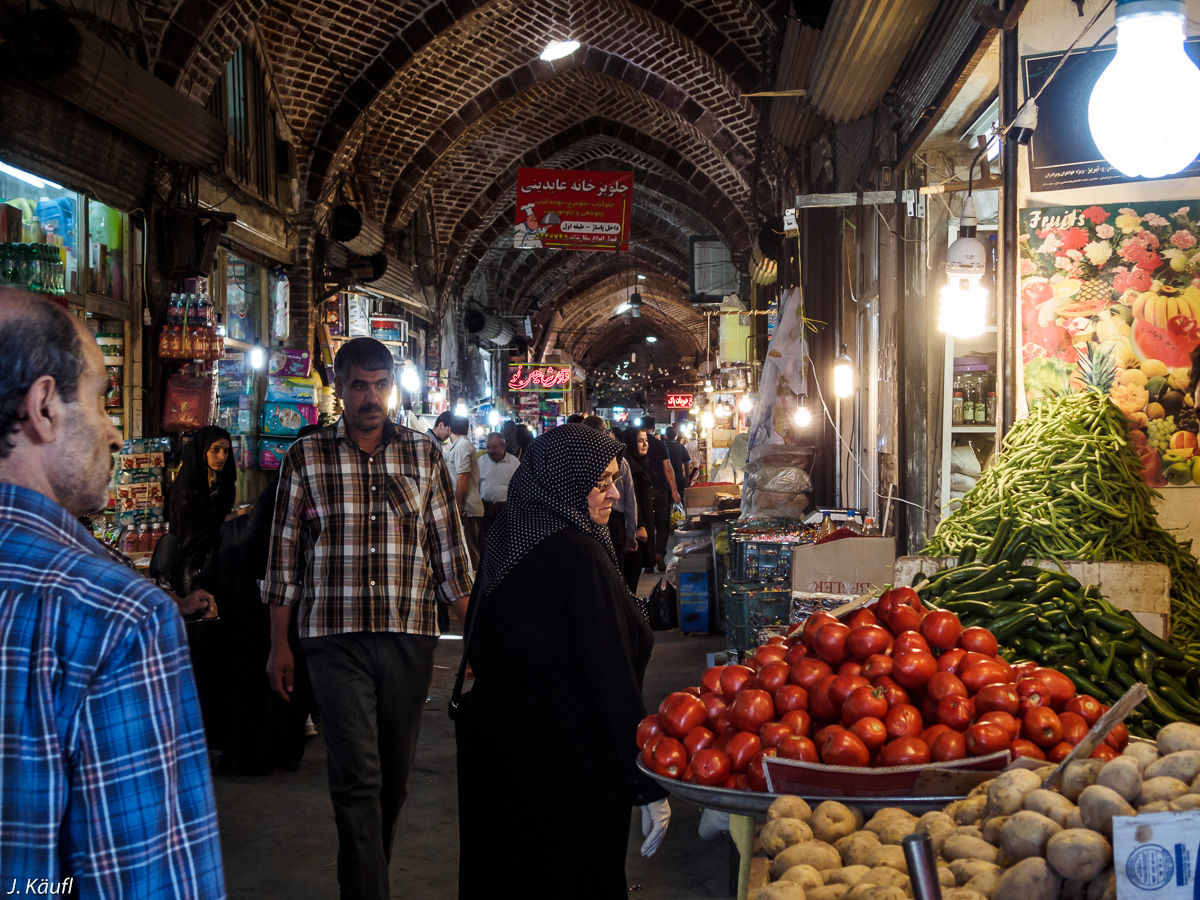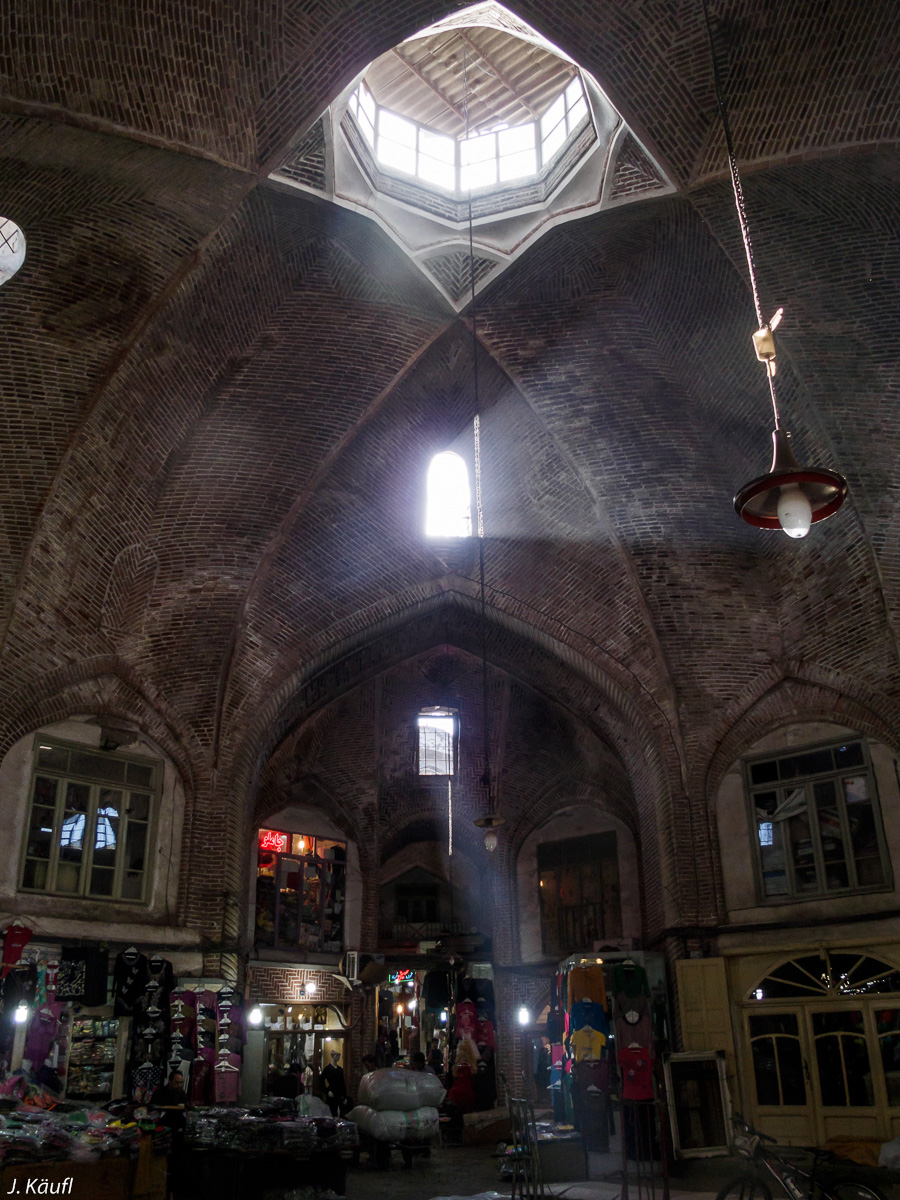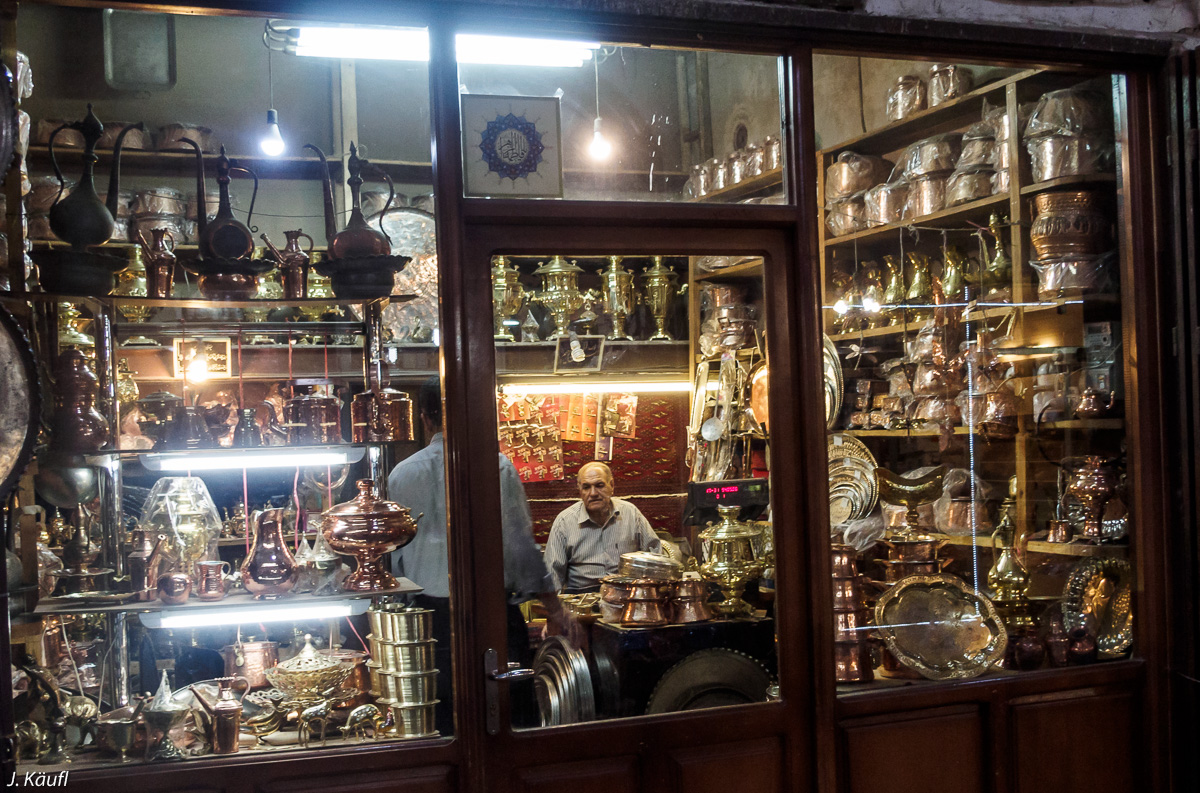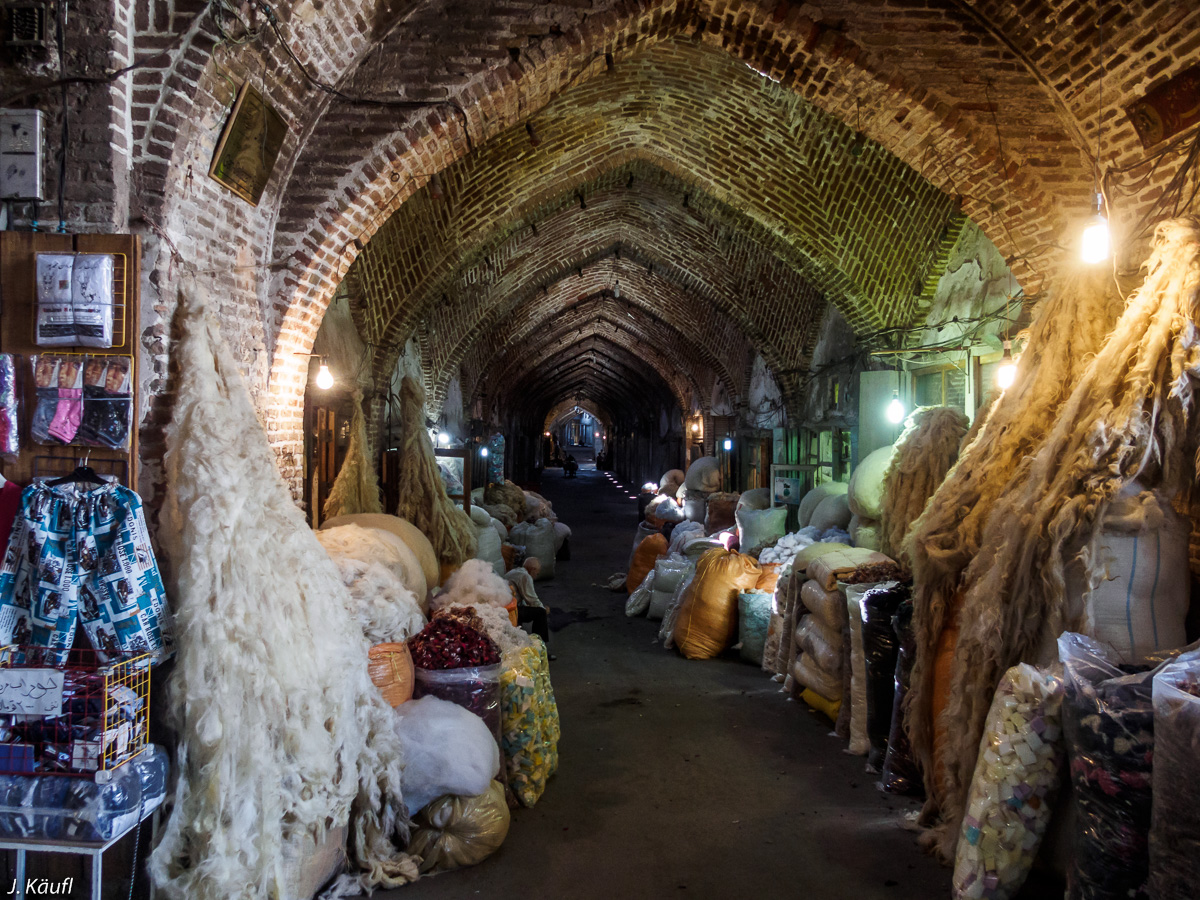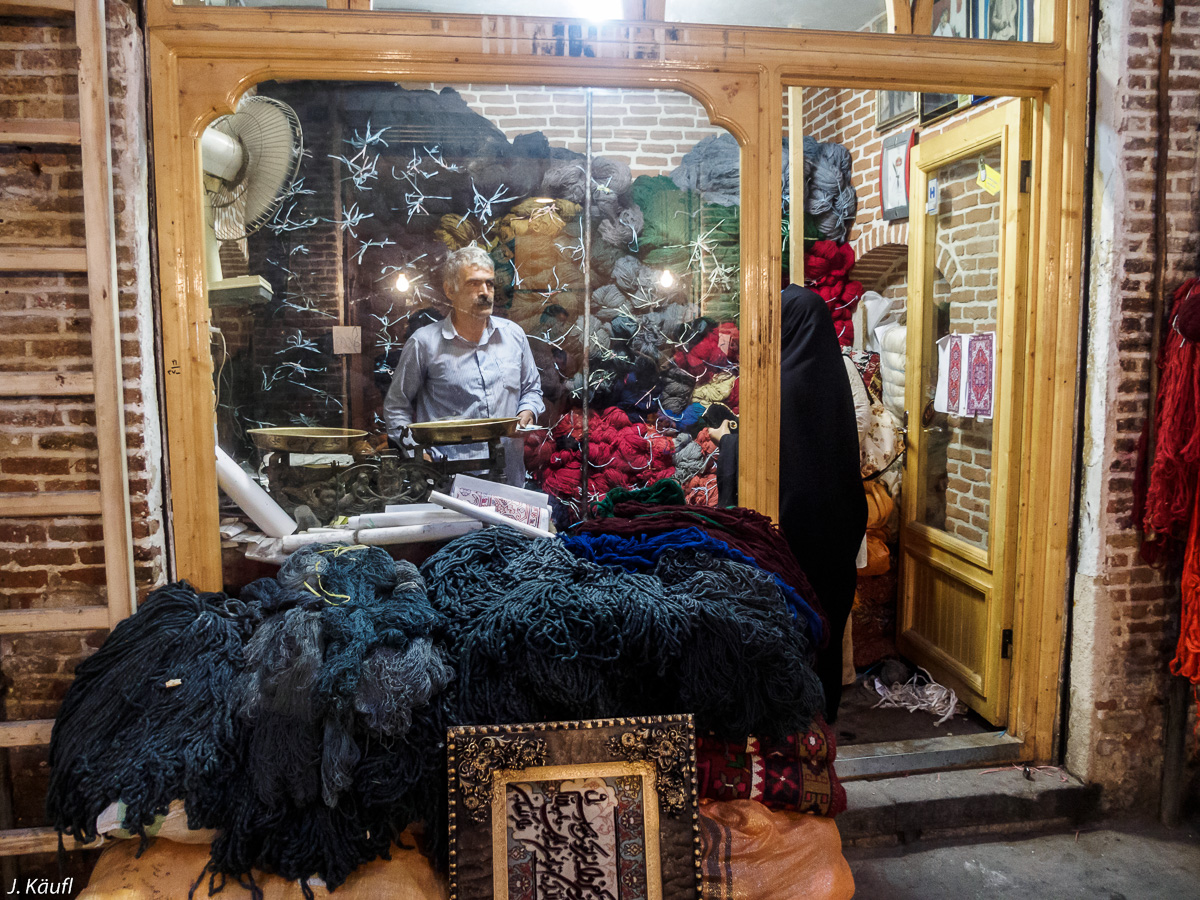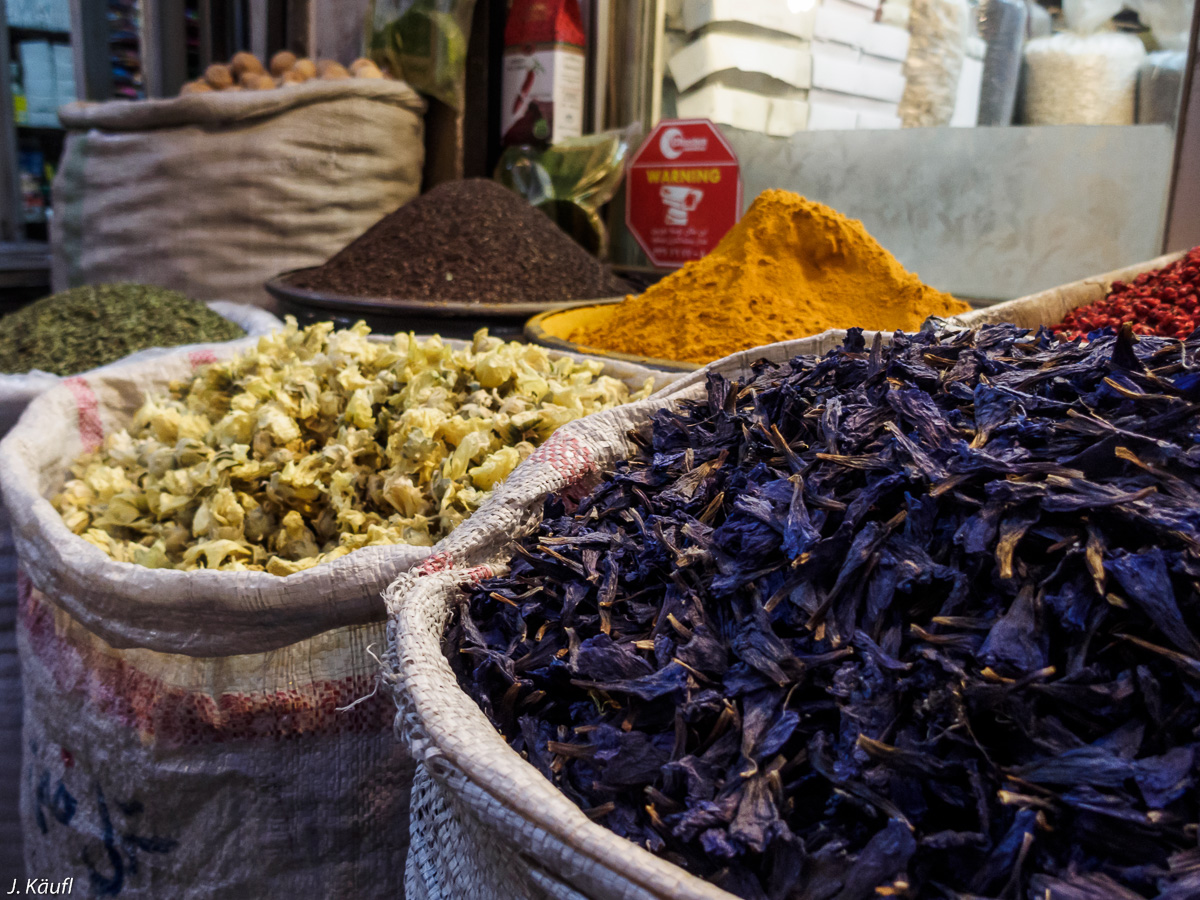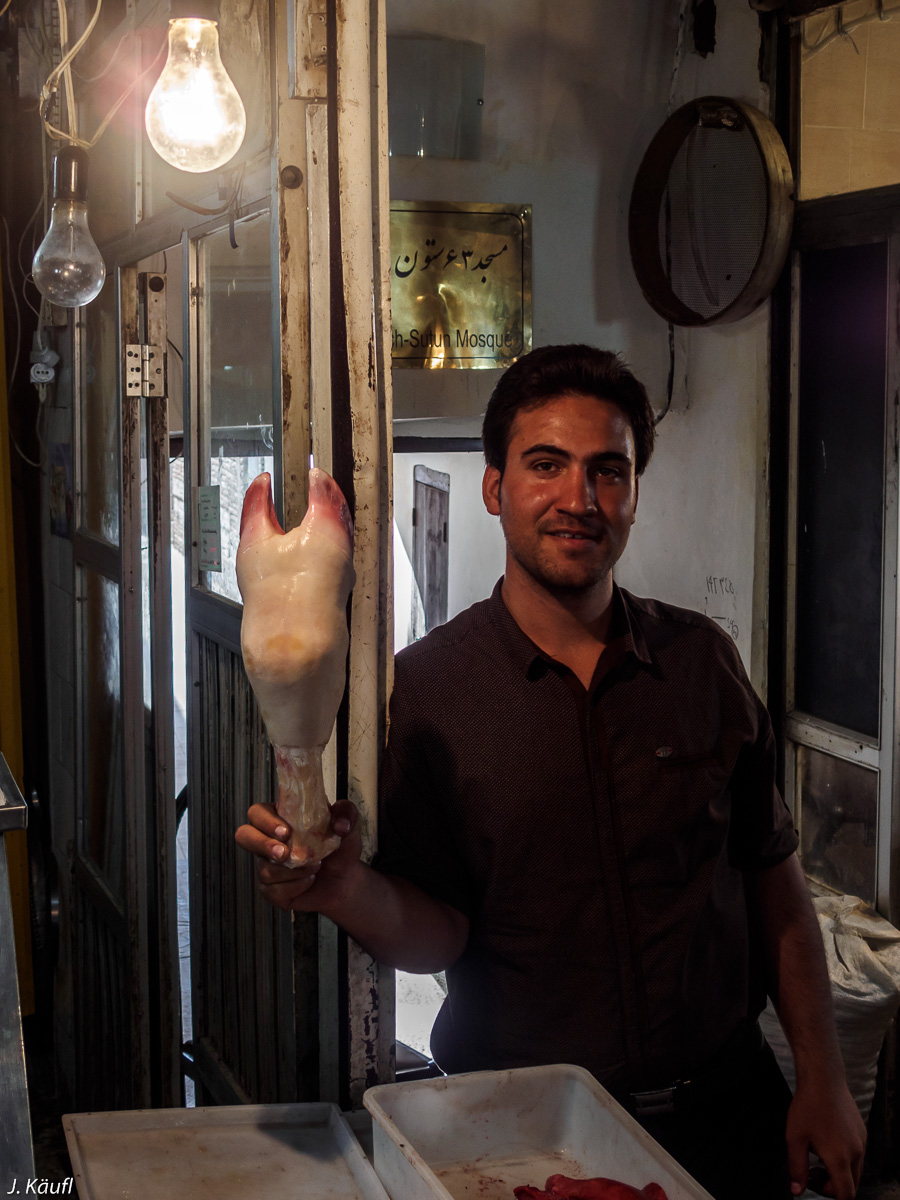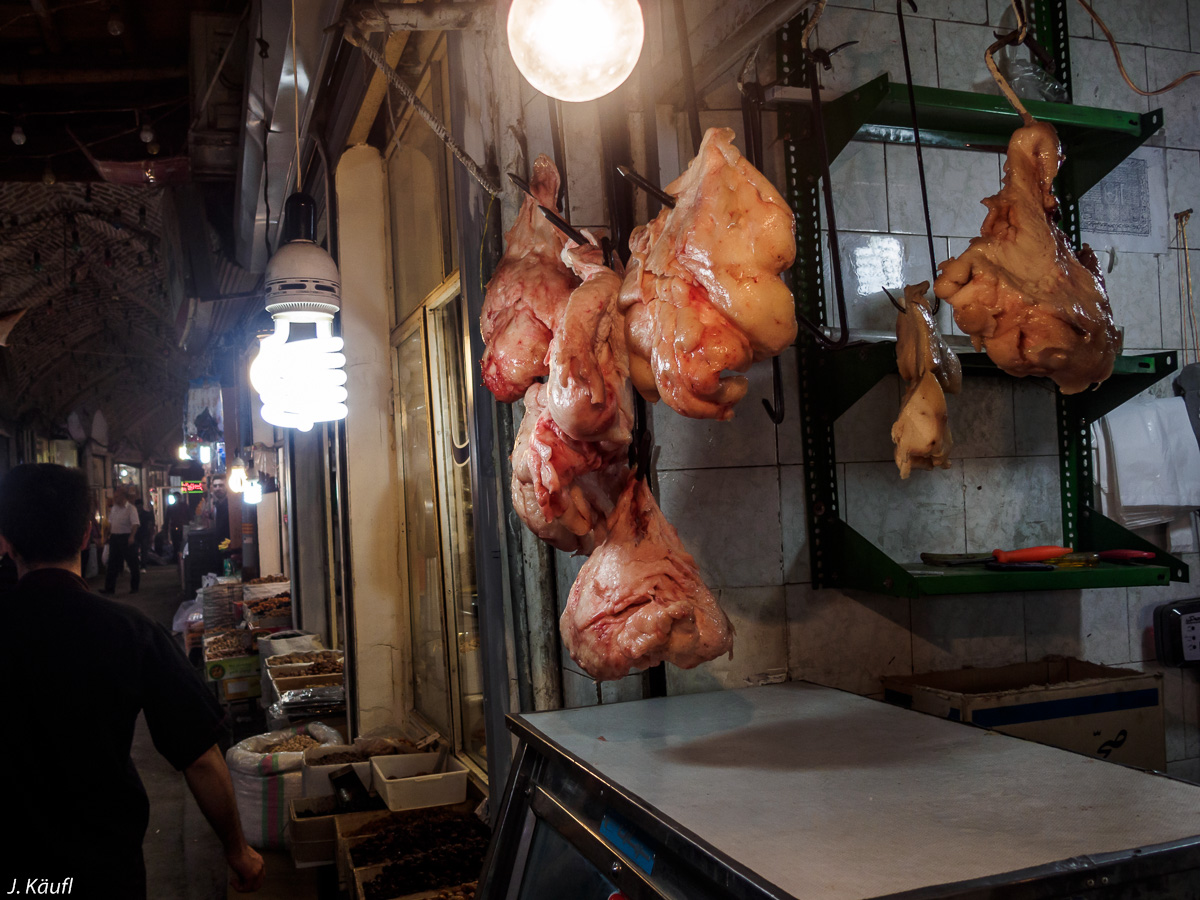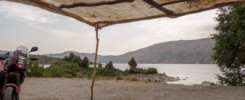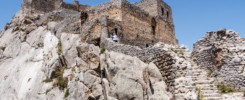Border crossings are always accompanied by anticipation of the unknown that lies beyond, but on that day my excitement was especially intense. There was something strangely unsettling in the prospect of entering Iran, I was nervous and very excited and not exactly sure why. Perhaps it was the fact that I was about to enter a country where only very few europeans have ever been, a country with many prejudices towards it and only very little factual information. A country which has a bad reputation in international politics but an amazing reputation among international travellers who have actually been there, telling about friendly people, genuine hospitality and a rich culture.
During the leg from Van to the border I had enough time to ponder such things, I followed the main roads and the ride was rather uneventful. This changed as I came closer to the border though. First I saw a long queue of trucks and dolmus (turkish shared taxis), soon the usual accumulation of shacks and buildings appeared along with a multitude of shady individuals who linger at large border crossings. I expected the gated checkpoint to appear, but instead I entered an area which resembled more a deconstruction site than a checkpoint. The pavement disappeared and the long line of cars, trucks and dolmus was winding through piles of rubble and past construction cabins. I started to doubt if I’m actually at the right place, but I figured that there has to be a reason for the line of cars and continued to filter past and cheat my way to its head.
At one point people started to shout and wave at me, I stopped and they gesticulated at one of the cabins. Apparently this cabin, which did not differ in any way from other cabins I had already passed, was a checkpoint. The guy inside matched his cabin in its unremarkable appearance, he wore jeans and shirt and nothing identified him as a border guard except the pistol on his belt. He checked my passport and I continued to the main checkpoint. It was inside a half demolished building with several more construction cabins inside, which acted as counters. A few people there showed me to which cabin I had to go, but I could not tell if these people were border crossers or officials, no one here wore a uniform. But in the end I got my passport stamped by a guy slouched on a couch with his bare feet on the armrest. Apparently it was official enough to exit Turkey.
The contrast on the iranian side could hardly be starker, the guards and officials wore clean uniforms with a badge and inside the main building there were neat counters behind glass windows. All the signs were only in farsi and I would have been equally lost if I hadn’t met the owner of the guesthouse in Urmia where I had planned to stay for my first two days in Iran. He waited for other guests to help them with the border crossing and since he had nothing else to do at the moment, he took care of my paperwork aswell. A short while later I had the stamp in my passport and another stamp in the carnet for the motorcycle and I was good to enter Iran.
I headed for Urmia, where I planned to do an oil change and become a millionaire. The latter one was no problem thanks to the exchange rate of 33000 rials per euro, the first one proved to be more difficult. Contrary to the promises of the guesthouse owner there was no motorcycle specific oil to be found and I had to settle with car oil in the end.
By coincidence other travellers, mainly motorcyclist, stayed in the guesthouse at the same time and I teamed up with Helena and Borut, a slovenian couple, for the ride to Tabriz on the other side of the Urmia salt lake. There we camped in a park not far off the city center, something that is not only allowed but hugely popular in Iran. So popular that all the grass in the park was occupied by groups of people sitting on persian carpets, barbecuing, drinking tea and generally enjoying life untill late in the night. We were quite happy to find a quiet out of the way place where we could actually sleep after the long and exhausting day.
The next day was again one of those days where my phone didn’t get charged. Two different charger cables didn’t work and I was worried that the battery finally has succumbed to the heat and died after too much sun exposure on top of my tankbag. The prospect of a dead phone made me realize that I was probably relying way to much on a single device for communication, navigation and internet access.
I said goodby to my slovenian companions who moved on, while I planned to stay in Tabriz and fix the damned phone’s charging problems once again. Plan A to solve the problem failed because of the day of week, friday is the muslim’s sunday and all shops including electronics/phone repair shops were closed. Plan B included Ali, an iranian motorcyclist who intercepted me and the slovenians on the highway entering Tabriz the day before. He later told me, that his father saw two motorcycles on the highway and phoned him, he then immediately jumped on his bike to catch and invite us to stay at his place. Iranians are not only hospitable, they are positively crazy about inviting travellers. Anyway, I called him with the phone of a passers-by and he dropped everything he was doing to meet me and promised to get my phone fixed, great guy.
In the end I stayed two further nights in Tabriz, not only sorting the problem with the phone (it turned out that the battery was fine but both charger cables were broken, a new charger fixed that) but also strolling on the bazaar, getting an introduction to iranian cuisine and planning a trip with Ali to a castle to the north of Tabriz. He was keen on going on his first motorcycle camping trip with me and I was happy to share some experience with motorcycle travelling in exchange for his local knowledge.
I end this episode with impressions from the bazaar in Tabriz. There is something fascinating, almost magical, about breathing the scent of herbs and spices, walking the narrow alleyways along the long lines of stalls, dimly lit and crammed with all kinds of goods.
Route (Fullscreen):
